Dogs are adaptable companions, but some breeds thrive in warm climates better than others. Some dog breeds have the right coat and body structure for hot weather, having originated in warm climates.
Their survival depends on their coat and fur, as well as their energy output. Dogs use panting to take heat away from their bodies, and if the humidity is too high, they are unable to cool themselves.
To find the best dog breeds for hot weather, consider factors such as coat type, body size, breed origin, and the shape and length of their snout.
Dogs with thick, double coats and short noses are more vulnerable to overheating, while breeds with short noses, like Bulldogs or Pugs, can cool themselves off better.
If you want a heat-sensitive breed, your dog will need to stay indoors on warm or humid days and exercise in the heat.
Experts, including dog behaviorists and veterinarians, will discuss some of the best dog breeds suited to warmer climates.
Some dog breeds, especially some African and South American varieties, can withstand heat better than others.
However, dogs should always have a plentiful supply of water and be encouraged to stay in the shade.
In this post, we’ll hear from a variety of specialists, including dog behaviorists and veterinarians, to learn more about some of the breeds most suited to warmer regions.
How To Keep Dogs Cool In Hot Weather
Summer is a time for outdoor fun with pets, but it also poses risks for them. Extreme heat can lead to heatstroke and other health issues.
To keep your pet safe, be prepared and think ahead. ASPCA experts recommend taking precautions to prevent overheating and ensure your pet stays healthy and happy.
Here are some key tips to keep your pet cool and safe during hot weather:
Top Tips to Help Keep Your Dog Cool in Hot Weather
1. Keep your dog hydrated by drinking plenty of water
Give your pets plenty of fresh, clean water when it’s hot or humid outside since they can become quickly dehydrated.
Make sure your pets have a shaded area to escape the sun, take care not to over-exert them, and confine them to the house during periods of high heat.
2. Guard Your Dog’s Paws Against Heated Surface
Sand and tarmac surfaces that heat up in the sun might be irritating to your dog’s paws. If in doubt, make your own inquiry.
It’s likely that your dog feels the same way if it’s too hot for you to touch, so try to stay in grassy or shaded locations instead.
3. Watch Out For Heat Stroke Signs
Heatstroke is a fatal condition in dogs that occurs when they cannot reduce their body temperature, occurring in both hot and warm weather.
It is particularly dangerous for overweight, young, elderly, flat-faced, giant-bred, and thick-coated dogs.
Signs of heatstroke include heavy panting, lethargy, confusion, drowsiness, vomiting, diarrhea, shaking, and seizures.
To prevent heatstroke, move the dog to a shaded area, keep them calm, and provide them with cool water.
Gradually move the water over the dog’s body, but not too much, and continue cooling them on their way to the vet.
4. On A Warm Day, Do Not Leave Your Dog Alone In The Car
Despite the warnings, every year pets pass away after being left in a hot parked car by their owners.
An automobile may get incredibly shot, stifling, and lethal in a matter of minutes.
Inside the automobile, it reached 117 degrees in less than 30 minutes. “Never, ever leave your dog in a parked car on a warm day.” That applies to all animals, by the way!
5. Pets shouldn’t be left unattended near a pool
Not all dogs are good swimmers, so never leave pets unattended near a pool.
Make sure your pets are wearing flotation devices when on boats and introduce them to the water gradually.
After swimming, rinse your dog off to remove salt or chlorine from his coat, and try to prevent him from swallowing pool water, which contains chlorine and other pollutants.
The Importance of Choosing the Right Breed
Before we dive into the breeds, let’s understand why selecting a dog suited for hot weather is crucial.
Dogs, like humans, can suffer from heat-related issues such as heatstroke or dehydration.
Choosing a breed that thrives in warmer climates ensures they can enjoy outdoor activities without unnecessary risks.
Breed Characteristics
The way a dog is built gives away a lot about how well-suited it is to the heat. Its coat is what is most noticeable.
A double-coated, dark-furred dog would seem as absurd as a person wearing a long, black fur coat in the middle of July.
Dogs with short hair, no hair, or a single coat do best in warm climates; their coats are also typically lighter in color, such as white, tan, or gray.
In general, dogs with long noses do better in hot weather. By the time the warm air is breathed in, their large snouts have cooled it.
Additionally, compared to dogs with droopy ears that retain heated air, dogs with big, upright ears tend to chill down much faster.
Dog 🐶 Breeds which can adjust very well in HOT🔥 CLIMATE
These 13 dogs are the best dogs for hot weather, uniquely adapted for tropical temperatures.
1. The Athletic Australian Cattle Dog
The Australian Cattle Dog is a highly active and energetic breed that thrives in hot weather.
Known for its blue or red color and dark patch over one or both eyes, these dogs are known for their agility and adaptability.
They are also known as the Blue Heeler in the US. The breed is related to the native Dingo of Australia but has lost much of its wild roots.
They are physically hardy and capable, with small, thick frames. They are known for their alertness, playful nature, and attentiveness.
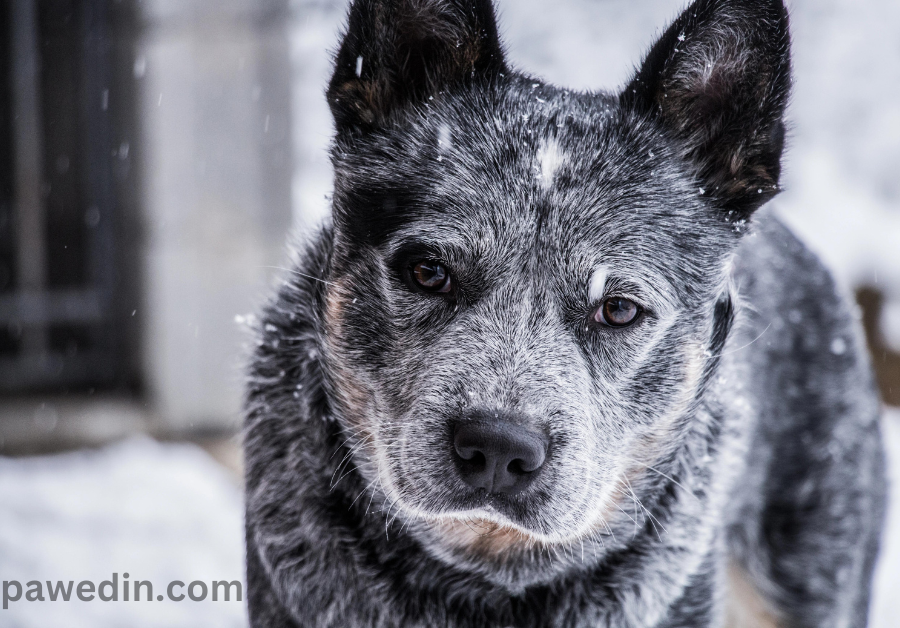
The Australian Cattle Dog’s short, dense coat, pointed ears, and long snouts make them suitable for extreme heat and cold.
Australian Cattle Dogs need both mental and physical stimulation, so if you decide to share your home with one, be ready to keep them busy and worn out.
They are happy in any climate but perform better in hot weather due to their coats keeping them cool and keeping them entertained during hot summer days.
Breed Overview
| GROUP | Herding (AKC) |
| HEIGHT | 17 to 20 inches |
| WEIGHT | 35 to 50 pounds |
| COAT AND COLOR | The color is often blue, blue mottled, or blue speckled; a less common variation has red speckles. Smooth, firm double coat |
| LIFE EXPECTANCY | 13 to 15 years |
2. The Graceful Greyhound
Greyhounds are natural-born sprinters with long, slender bodies and beep-barreled chests, making them ideal for hot climates.
Their thin coats require sunscreen, but they retain minimal body heat. They typically have one or two short bursts of energy daily and are content to lounge on the couch.
Medium-sized alternatives include the Whippet and the smaller Italian Greyhound.
The Italian Greyhound, one of the oldest sighthound breeds, is known for its speed and racing potential, as well as their ultra-fine coats.
They are intelligent and quick to catch on, making them excellent companions.
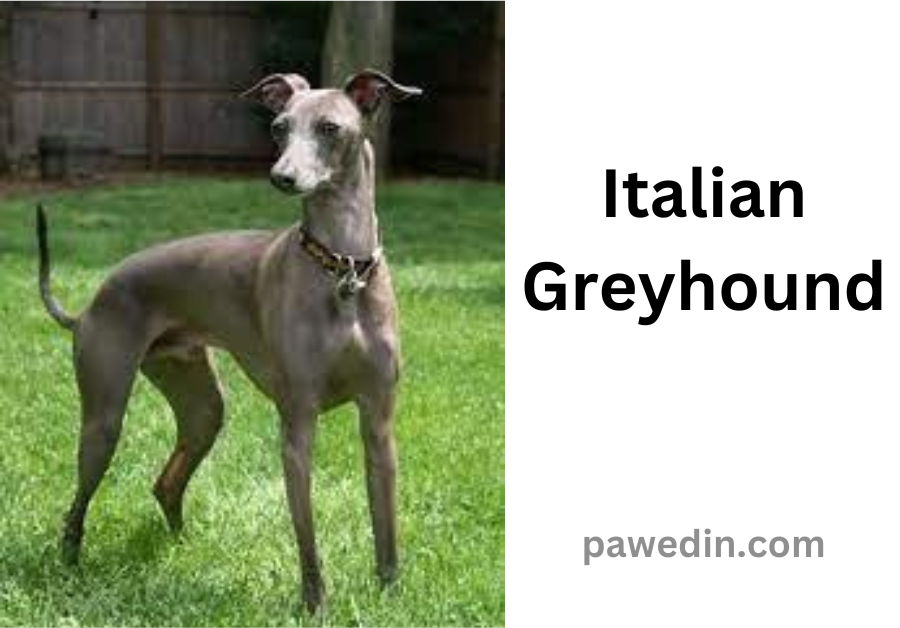
They originated in Greece and Turkey before becoming highly sought-after items in Italy during the Renaissance.
Their slender frame and short coat make them ideal for warm weather, as they carry little body fat and often need sweaters and coats to combat cold weather.
Breed Overview
| GROUP | Toy (AKC) |
| HEIGHT | 13 to 15 inches |
| WEIGHT | 7 to 14 pounds |
| COAT AND COLOR | Gray, black, fawn, chocolate, tan, cream, red, sable, or a mixture of these colors and a Short and smooth coat. |
| LIFE EXPECTANCY | 14 to 15 years |
3. The Happy-go-Lucky Dalmatian
Dalmatian dogs are known for their regal carriage, unique spots, and adaptability. With short coats, lanky build, long muzzles, and big ears, they are ideal for hot weather.
However, their high energy level and intelligence require rigorous training. Dalmatians are popular in childhood movies and older firehouses but can be hyper and aggressive.

They thrive in only-dog households and have a decent lifespan of 13-16 years. Although they are prone to allergies, deafness, and urinary stones, they are generally well-socialized and exercised. Around 30% of Dalmatians are deaf.
Breed Overview
| GROUP | Non-sporting (AKC) |
| HEIGHT | 19 to 24 inches |
| WEIGHT | 48 to 55 pounds |
| COAT AND COLOR | smooth and short, with black dots |
| LIFE EXPECTANCY | 13 to 16 years |
4. The Affectionate Chihuahua
Chihuahuas, a Mexican breed, are known for their alert yet sensitive nature and love for affection and companionship.
Despite their small size, they are known for their aggressive nature. Chihuahuas are short-haired and cold-sensitive, preferring the heat and being known for their spoiled nature.

Chihuahuas are known for their stubborn yet sweet nature, making them perfect for cold summer nights.
With their thin coat and petite size, they are more comfortable in hot weather climates. Chihuahuas are known for their stubborn yet sweet nature, making them perfect pets for families with children.
Breed Overview
| GROUP | Toy (AKC) |
| HEIGHT | 6 to 9 inches |
| WEIGHT | 2 to 6 pounds |
| COAT AND COLOR | Smooth coats or long coats are common, and they come in a variety of hues, either in solid or two-color combinations, such as black, tan, fawn, cream, white, blue, silver, chocolate, and red. |
| LIFE EXPECTANCY | 10 to 20 years |
5. Ibizan Hound
The Ibizan hound, a medium-sized dog breed from Ibiza, Spain, has a rich history dating back to the time of the pharaohs of Egypt.
They are known for their alertness, intelligence, and loyalty to their families.
Originating from the Balearic islands, they were bred to chase and fetch rabbits, similar to the Pharaoh hound, who also thrives in heat.
The Ibizan hound’s long-limbed, slender body, short coat, and large ears help dissipate heat and keep them cool.
They are well-suited for hot climates, with their large ears and lean bodies making them ideal for outdoor activities.
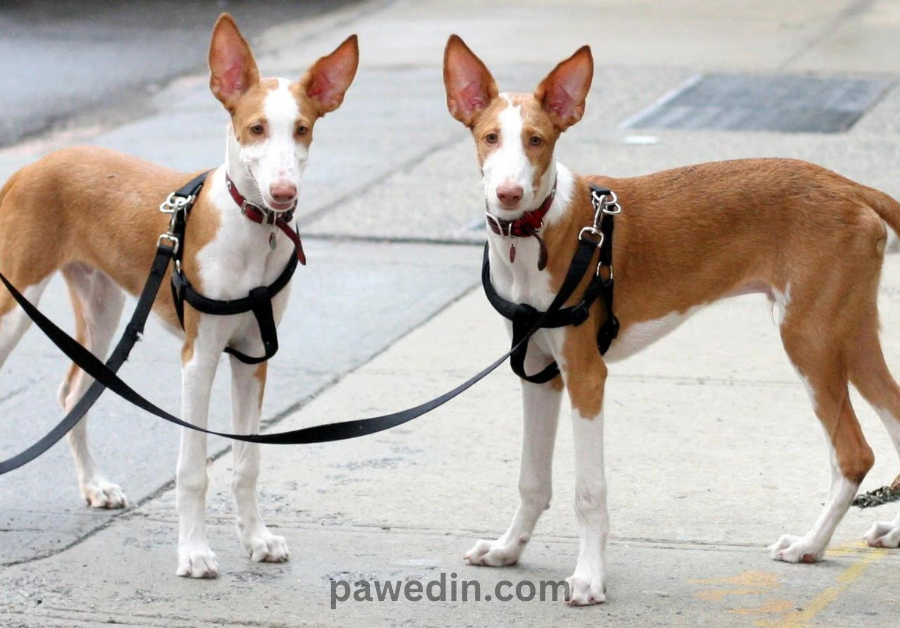
Grooming is easy, and their fur stays short all year round. Ibizan Hounds are known for their clown-like personalities, high jumps, and impressive nimbleness.
With a moderate lifespan of 10 to 12 years, they are prone to hip dysplasia and autoimmune thyroiditis, but these risks are minimal compared to the joy they bring.
Breed Overview
| GROUP | Hound (AKC) |
| HEIGHT | 22 to 28 inches |
| WEIGHT | 45 to 50 pounds |
| COAT AND COLOR | There are pure red, solid white, or white and red patterns in short, coarse hair that might be silky or wiry. |
| LIFE EXPECTANCY | 12 to 14 years |
6. Afghan Hound
The Afghan Hound, a hunting dog from Afghanistan, thrives in both hot and cold weather due to their long snout and lean body.
They are independent, loyal, and affectionate with their families, and respond best to gentle handling and patience.
Their flowy hair protects their skin from extreme sun exposure, and they can be aloof or put off by strangers.

Although they were originally hunters, they prefer being with their families and socializing.
These dogs live 12 to 14 years and can face health issues like thyroid disorders, juvenile cataracts, and hip dysplasia.
They can run up to 40 mph, making them suitable for hot climates. However, regular grooming is necessary to keep their coat free of snarls and debris.
Breed Overview
| GROUP | Hound (AKC) |
| HEIGHT | 25 to 27 inches |
| WEIGHT | 50 to 60 pounds |
| COAT AND COLOR | Any color or mix of colors, including brindle and domino, is present in the long, thick, and beautiful coat. |
| LIFE EXPECTANCY | 12 to 14 years |
7. Yorkshire Terrier
The Yorkshire Terrier is a small, stylish, and spirited breed with long locks that can be groomed or styled.
They are hypoallergenic and can handle hot weather, making them a great watchdog. However, they are vocal and can be easily wounded by noise.
On average, they live 12 to 16 years, but they may suffer from health issues like cancer and liver shunt.
Yorkies are prone to reverse sneezing, causing them to honk like a goose. Their silky coat, which is hair-like, doesn’t trap heat, making them better suited for hot areas.
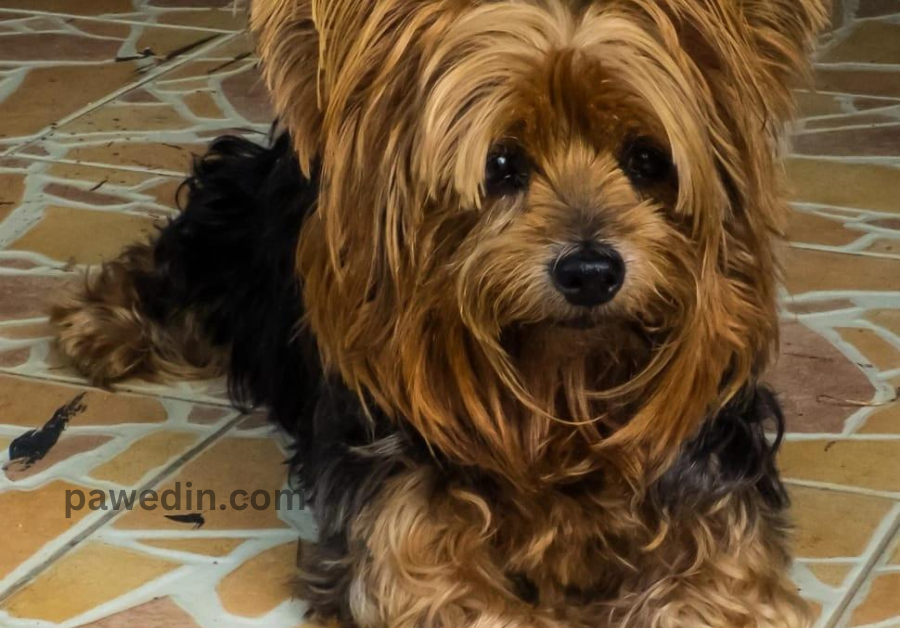
Breed Overview
| GROUP | Toy (AKC) |
| HEIGHT | 8 to 9 inches |
| WEIGHT | 5 to 7 pounds |
| COAT AND COLOR | Standard color combinations are black and gold, black and tan, blue and gold, and blue and tan; puppies may not show their final coat color until age 3 or older. Long, straight, and silky coat. |
| LIFE EXPECTANCY | 13 to 16 years |
8. Chinese Crested
Chinese Crested Dogs are a small breed of dog that originated from African or Mexican hairless dogs.
They are known for their alertness, loyalty, and intelligence, making them ideal companions.
They prefer warmer weather due to their nakedness and are known for their sweet disposition.

Chinese Cresteds have a mild, affectionate nature and can have skin-related issues like acne, sunburns, and rashes.
They have a lifespan of 13 to 15 years and can suffer from health issues like seizures, eye problems, and deafness.
It is important to use sunscreen or other precautions to protect your dog from the harmful effects of the sun.
Breed Overview
| GROUP | Toy (AKC) |
| HEIGHT | 11 to 13 inches |
| WEIGHT | 8 to 12 pounds |
| COAT AND COLOR | Only the head, foot, and tail have soft, silky hair; the rest of its body has grayish-pink skin without any hair. A less well-known coated “powderpuff” variation has a silky coat that is white and gray in hue. |
| LIFE EXPECTANCY | 13 to 18 years |
9. Airedale Terrier
Airedales are intelligent, playful, and goofy dogs that can easily become bored. They are the largest of the terrier breeds and can tolerate hot weather.
Keep them busy with toys, exercise, and outdoor activities, but be cautious of hot surfaces like rocks or plastic playground equipment.
Airedales are hunting-friendly and easy to care for in hot weather. They have a short, wiry, and fuzzy coat, allowing heat to escape.
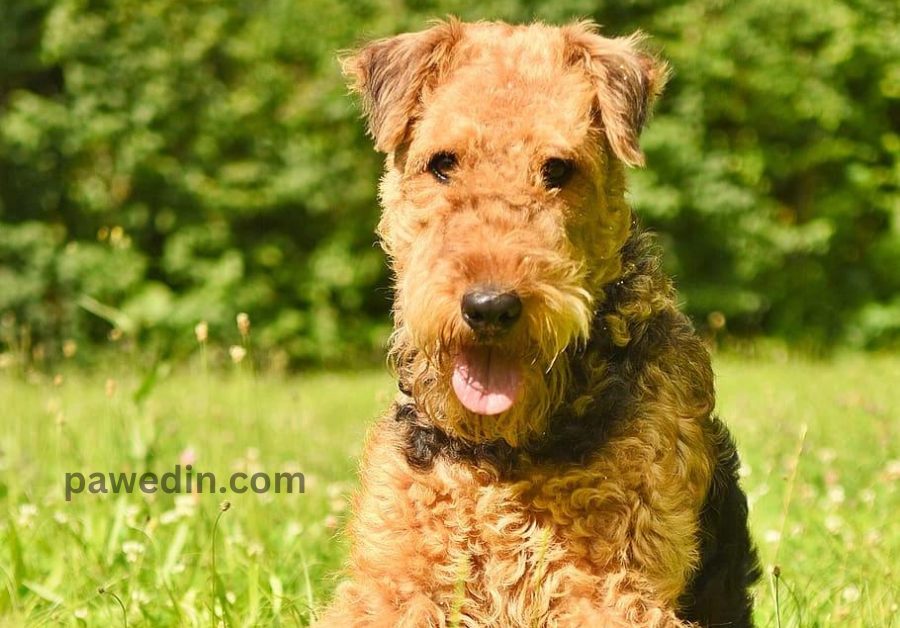
Breed Overview
| GROUP | Terrier (AKC) |
| HEIGHT | 22 to 24 inches |
| WEIGHT | 40 to 65 pounds |
| COAT AND COLOR | Having a short, straight, hard, wiry topcoat and a softer undercoat, The body is a mixture of tan and black or dark grizzle, with a tan head and ears. |
| LIFE EXPECTANCY | 11 to 13 years |
10. Great Dane
Great Danes, part of the Mastiff family, thrive in hot weather due to their short coat and natural tendency to conserve energy.
Despite being one of the largest dog breeds, they are known for their love for heat and can sleep through heat waves.

They were developed to hunt wild boar, but today they are docile and generally get along with other dogs, animals, and people.
Great Danes are known for their love for heat, and owners should ensure their dogs have shady spots to retreat from the sun and never leave them unattended.
Breed Overview
| GROUP | Working (AKC) |
| HEIGHT | 28 to 32 inches |
| WEIGHT | 110 to 175 pounds |
| COAT AND COLOR | Short hair in the mantle (black and white) or harlequin (white with black spots) or brindle, fawn, blue, black. |
| LIFE EXPECTANCY | 6 to 8 years |
11. German Shorthaired Pointer
The German Shorthaired Pointer is a friendly, fun-loving family dog with short hair and medium size, making them ideal for hot weather.
They are energetic and require constant exercise, and training is essential for early socialization.
These dogs are versatile hunters, adapting well to all climates due to their lean build, long snouts, and short coats.
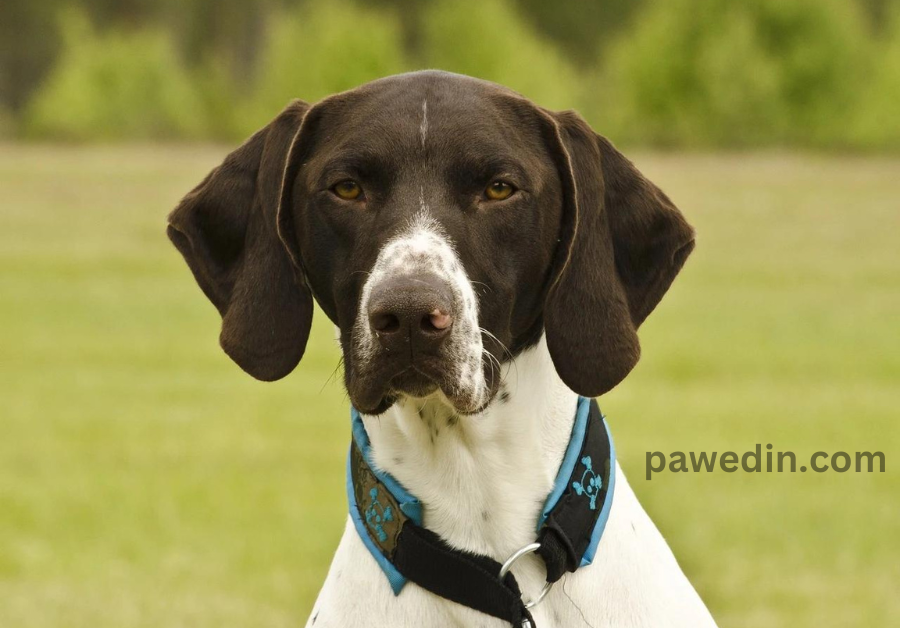
They are sociable and good friends to children but can be a bit rambunctious for young ones.
They can track, hunt, point, pull sleds, detect bombs, and participate in various activities.
Their short, flat water-resistant coat helps regulate their temperature and repels dirt. Although they require space to play and run around, these exuberant and active dogs live long lives, frequently reaching their mid-teens.
Breed Overview
| GROUP | Sporting (AKC) |
| HEIGHT | 21 to 25 inches |
| WEIGHT | 45 to 70 pounds |
| COAT AND COLOR | Usually in solid liver or liver and white, short, thin coat |
| LIFE EXPECTANCY | 10 to 12 years |
12. Xoloitzcuintli
The Xoloitzcuintli, also known as the Mexican Hairless Dog, is a native breed from Mexico and Central America.
They come in both hairless and coated varieties, making them ideal for hot weather.
These dogs are affectionate, attentive, and aloof with strangers. They are available in three sizes: toy, miniature, and standard.
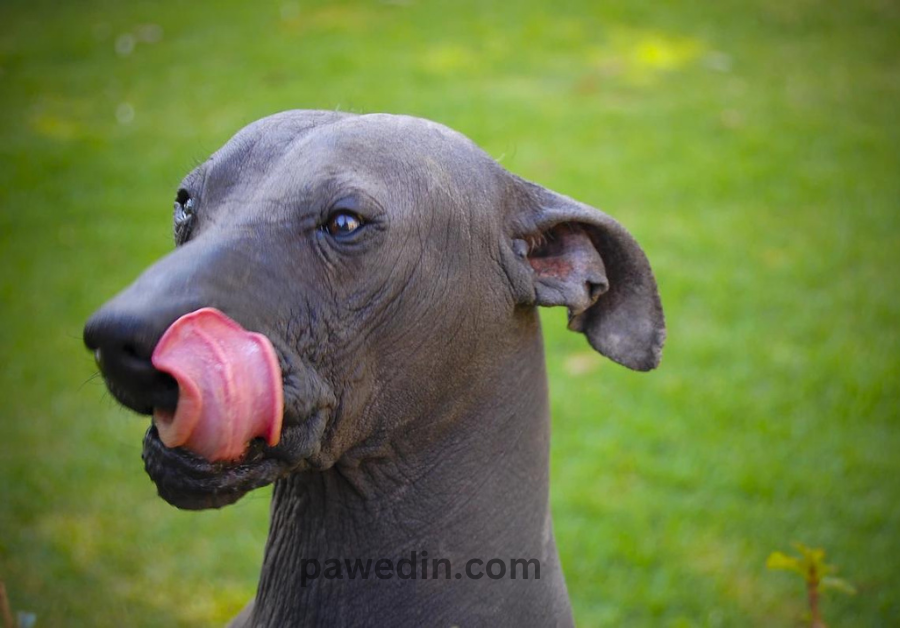
They are not extremely active, but daily walks or energetic playtime in a fenced yard can satisfy their needs.
Breed Overview
| GROUP | Non-Sporting (AKC) |
| HEIGHT | 18 to 23 inches |
| WEIGHT | 30 to 55 pounds |
| COAT AND COLOR | Tufts of hair on the top of the head, and occasionally on the paws and tail as well; tough, smooth skin that is typically darkly pigmented; The short, smooth fur of the coated species comes in a variety of hues, such as black, gray-black, slate, red, liver (brown), or bronze. |
| LIFE EXPECTANCY | 14 to 17 years |
13. Border Collie
Border Collies are an energetic, acrobatic, and lively breed suitable for parks in warm environments.
They are intelligent but require ample space and pleasant weather for running. Originally bred for herding, they thrive in hot weather due to their long snouts, pointed ears, and athletic build.
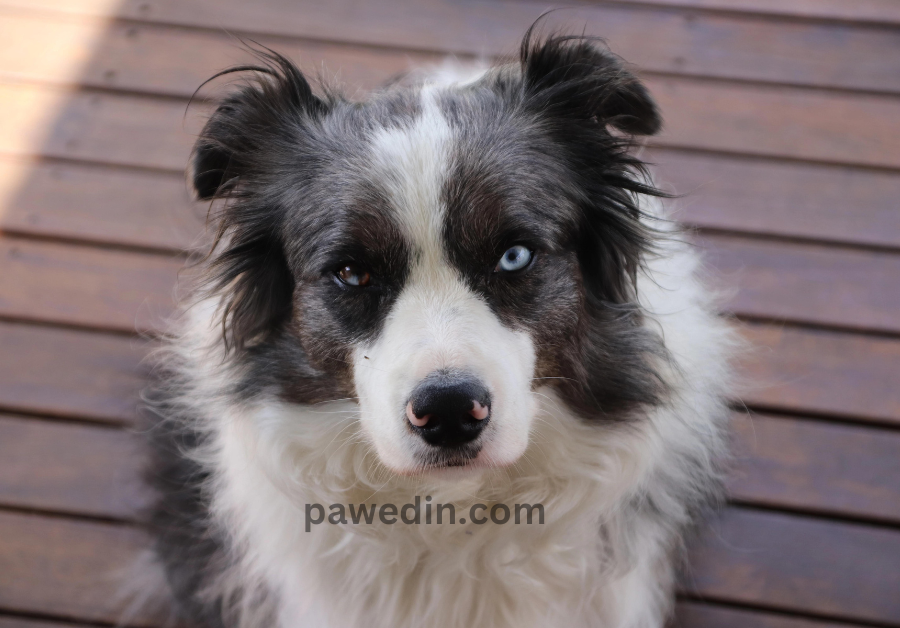
Border Collies are known for their alert, energetic, hardworking, and smart nature, making them ideal for activities like flyball, frisbee, and disc dog competitions.
Although they are not suitable for first-time owners or families with limited time for obedience, they excel in activities like frisbees and other sports.
Breed Overview
| GROUP | Herding (AKC) |
| HEIGHT | 18 to 22 inches |
| WEIGHT | 30 to 45 pounds |
| COAT AND COLOR | Medium length, smooth or rough, and mixed colors |
| LIFE EXPECTANCY | 12 to 15 year |
Conclusion
Choosing a dog breed that can thrive in hot weather is essential for their well-being and happiness.
The 13 dog breeds mentioned in this article are well-adapted to warm weather and make excellent companions.
Remember to consider your lifestyle and the dog’s needs before making a decision.
Explore more:
- Dog foods and nutrition to keep your doggy healthy
- Common dog health issues and care
- Master the art of dog grooming with these hacks
- What are the different types of dog breeds
FAQs
Q1: Are these dog breeds suitable for all hot climates?
While these dog breeds can generally handle hot weather well, it's essential to consider the specific conditions of the region. Some breeds may require additional measures, such as providing shade and plenty of water during scorching temperatures.
Q2: Can I keep these dogs in apartments during hot weather?
Many of the mentioned breeds, like the Italian Greyhound and Bulldog, can adapt to apartment living in hot climates. However, it's essential to ensure they have proper ventilation and access to a cool environment.
Q3: Are there any grooming requirements for these breeds in hot weather?
Most of the breeds listed have short coats, making grooming relatively easy. Regular brushing to remove loose hair and keeping their coat clean will suffice for most of them.
Q4: Do these breeds have any special exercise needs in hot weather?
Some breeds, such as the Australian Cattle Dog and Vizsla, are highly active and require regular exercise regardless of the weather. However, it's best to schedule their exercise during cooler parts of the day to avoid overheating.
Q5: How can I keep these dogs cool during hot summers?
Providing access to shade, and fresh water, and avoiding strenuous activities during the hottest parts of the day can help keep these dogs cool. You can also use cooling mats or provide them with a shallow pool to play in.
